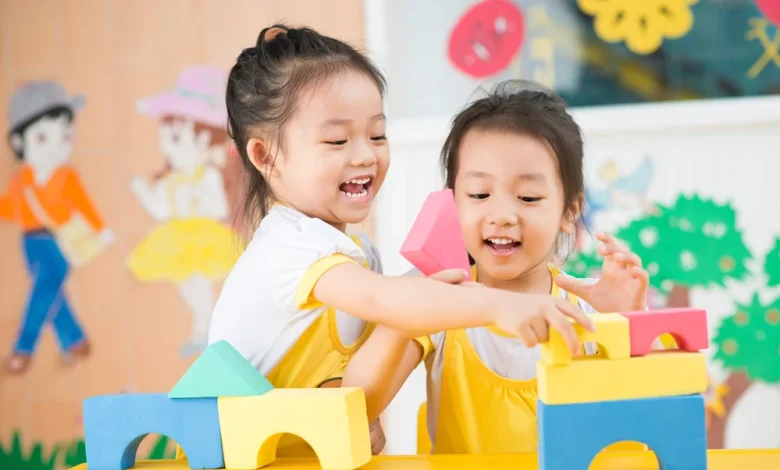Little Voices, Big Connections: Social Skills for Ages 3–5

Between the ages of 3 and 5, children experience an incredible transformation—not just physically and mentally, but socially too. These early years are when they begin to develop the essential social skills that lay the foundation for how they interact with others for the rest of their lives. From learning to share toys to expressing emotions appropriately, young children are constantly experimenting with and learning the rules of social engagement.
Why Social Skills Matter in Early Childhood
Social skills are more than just saying “please” and “thank you.” They include a broad range of behaviors such as listening, taking turns, showing empathy, cooperating, and managing emotions. Strong social skills help children build relationships, navigate group settings like preschool or daycare, and feel more confident in their interactions. These abilities also support cognitive development and prepare children for the structured environment of school.
Children with healthy social skills often demonstrate better problem-solving abilities, greater resilience, and a stronger sense of belonging.
Key Social Milestones for Ages 3–5
Each child develops at their own pace, but there are common social milestones to look out for between the ages of 3 and 5:
- Age 3: Children begin to engage in parallel play (playing alongside others) and start to show interest in other children. They may imitate peers and adults and begin to understand the concept of “mine” and “yours.”
- Age 4: Kids often start participating in cooperative play, showing a greater understanding of sharing and taking turns. They begin to express their feelings with words and may start forming friendships.
- Age 5: Most children become more socially aware. They enjoy group activities, follow simple rules, and express empathy when others are hurt or upset. Role-playing and pretend play also become more complex and interactive.
Encouraging Social Growth at Home
As a parent or caregiver, you are your child’s first and most influential teacher. Here are a few practical ways to help your child build strong social skills:
Model Positive Social Behavior
Children learn by watching. Use polite language, resolve conflicts calmly, and demonstrate active listening. When your child sees you expressing empathy or cooperating with others, they’re more likely to mimic those behaviors.
Play with Purpose
Encourage pretend play, board games, and cooperative activities. These experiences teach kids how to negotiate roles, wait their turn, and handle losing gracefully. Playdates, when managed well, offer opportunities to practice sharing and communication.
Talk About Feelings
Help your child label their emotions and understand others’. Use phrases like, “You look happy!” or “I can see you’re upset. Do you want to talk about it?” Picture books and storytelling are also great tools for teaching emotional intelligence.
Practice Problem-Solving Together
When conflicts arise, don’t rush to fix them. Instead, guide your child through the process. Ask questions like, “What happened?” “How do you think they felt?” and “What can we do next time?” This approach builds empathy and critical thinking.
Celebrate Social Successes
Recognize and praise kind or cooperative behavior. Statements like, “I noticed you waited patiently for your turn—great job!” reinforce positive actions and boost self-esteem.
Common Challenges and How to Handle Them
Social learning isn’t always smooth. Here are some typical challenges and tips for addressing them:
- Shyness: Respect your child’s temperament while encouraging small steps. Let them warm up in social situations and avoid pushing them too hard.
- Aggression or Hitting: Set clear boundaries, explain why the behavior is unacceptable, and model alternative responses like using words or asking for help.
- Difficulty Sharing: Practice sharing at home using toys or snacks. Narrate the experience positively: “It’s your turn now, and then your friend will have a turn.”
The Role of Preschool and Group Settings
Environments like preschool and daycare—such as those available in West Jordan—offer young children consistent, everyday opportunities to build and refine their social skills. In these settings, kids learn to engage with peers, follow group routines, and respond to guidance from adults outside their immediate family. Many early education programs also incorporate social-emotional learning (SEL) into their daily curriculum, helping children develop empathy, cooperation, and self-awareness.
Staying in regular communication with your child’s teachers or caregivers allows you to better understand their social progress and find ways to reinforce positive interactions at home.
Building a Lifelong Foundation
The early years are the perfect time to nurture kindness, cooperation, and emotional awareness. The social connections children make during this stage—whether with family, friends, or classmates—shape their confidence and well-being for years to come.
By guiding and supporting your child with patience and intention, you’re helping them develop into empathetic, communicative, and resilient individuals. Little voices can make big connections—and those connections start with you.




